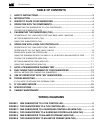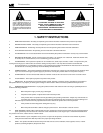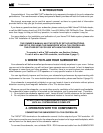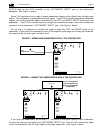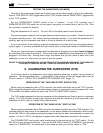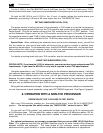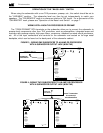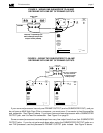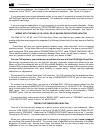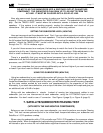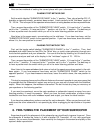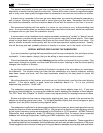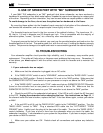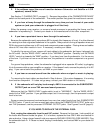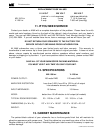
THX subwoofers page 11
DO NOT PLUG THE SUBWOOFER INTO A SWITCHED OUTLET ON ANOTHER
COMPONENT. THE SUBWOOFER CAN DRAW UP TO 400 WATTS FROM THE
AC LINE. IT MUST BE PLUGGED INTO A SOLID AC LINE.
Now, play some music through your system to make sure that the Satellite speakers are working
properly. If they are, carefully advance the "BASS LEVEL" control. The subwoofer should begin to
play. Set the "BASS LEVEL" control where the subwoofer sounds in balance with the Satellite
speakers. If the system is not working properly, unplug the subwoofer and check all of your
connections. Call your dealer or the factory if you cannot solve any problem.
SETTING THE SUBWOOFER LEVEL (NON-THX)
Here are two ways to set the subwoofer level. First, if you can obtain a spectrum analyzer, you can
accurately match the subwoofer to the main speakers. First feed a wideband pink noise signal into
the full system (both the satellites and the subwoofer). Then set up the analyzer at the main listening
position. Adjust the "BASS LEVEL" control until the analyzer display shows the flattest response
through the 70 - 125 Hz midbass region.
If you don't have access to an analyzer, the best way to match the level of the subwoofer to your
system is to do it by ear, listening over several hours to familiar recordings. Make adjustments to the
level in small increments, depending on whether the bass level sounds too high or too low.
There is a possibility that your surround sound processor has a built in test generator for the
subwoofer level, but the virtually all non-THX processors do not. If you do have such a surround sound
processor, see SETTING SUBWOOFER LEVEL (THX), on page 7.
In any case, remember that you can always deliberately set the level higher if you want more bass
or lower if you don't want to disturb your neighbors.
USING TWO SUBWOOFERS (NON-THX)
Using two subwoofers in your audio/video system will give you the ultimate in bass performance.
It will give you improved impact and definition, as well as greater output and dynamic range. If you
locate the subwoofers in different parts of the room, you will hear a better overall frequency response,
as the room modes excited by one woofer are complemented by the presence of the other.
Alternately, if you stack two subwoofers, one on top of the other, their outputs will couple and give you
an additional total of 6 dB of output.
Wiring with two subwoofers is simple. Instead of running two interconnect cables to one
subwoofer, just run one interconnect to each subwoofer, using the LEFT/MONO input on each
subwoofer. You don't need to use a Y-connector. See Figure 4 (page 8), or Figure 6 (page 9).
7. SATELLITE/SUBWOOFER PHASING TEST
(WITH BOTH THX AND NON-THX COMPONENTS)
Before you can sit down to enjoy your new subwoofer, you need to perform one simple Phasing
Test. This test insures optimum sound in the critical bass frequencies where your subwoofer and
Satellite or L/C/R speakers overlap.
When using the subwoofer with a THX controller and THX L/C/R speakers, the crossover slopes
are linear phase. When the subwoofer is placed along the same axis as the front speakers, the system
will tolerate a plus or minus 28 inch offset before significant losses at the crossover point are seen.



